My brother Henry would be 72 years old today, September 2, 2019. I have wanted to write about him ever since he died, back in April 2018, but have had trouble getting started. I decided to start his story today. I will add to it as I am able.
Henry’s story started on September 2, 1947, in Akron, Ohio, when he was born. But this story starts a few days after May 18, 1950, because that’s the earliest date Henry could remember, and it’s when the story teller’s story started. Henry was not sure that the ride to the hospital was a real memory. He thought he might have manufactured it after having been told about it many times. But the facts are right.
Henry and our father came to McCall Hospital a few days after I was born to pick up me and our mother and take us home.
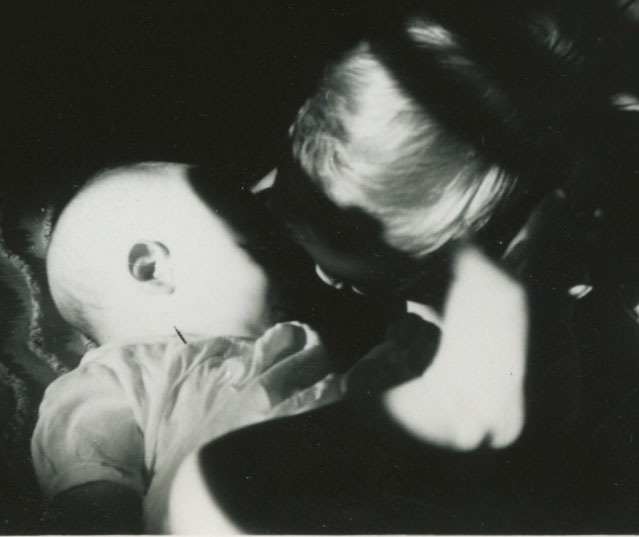
Me, as a baby, and Henry, as a very young little boy
Home was 19B Redmond Road, the third house on the left, at the intersection with Leland Avenue. Our house was one of a long line of almost identical houses on both sides of the road. They were at the edge of Summerville Park, a little four-block-square neighborhood bounded by the Berry College campus on the north, Martha Berry Boulevard on the east, and Berry property on the west. There was a swampy low area around a creek on the south, and just beyond it a dirt road that passed a brick yard with several domed kilns.
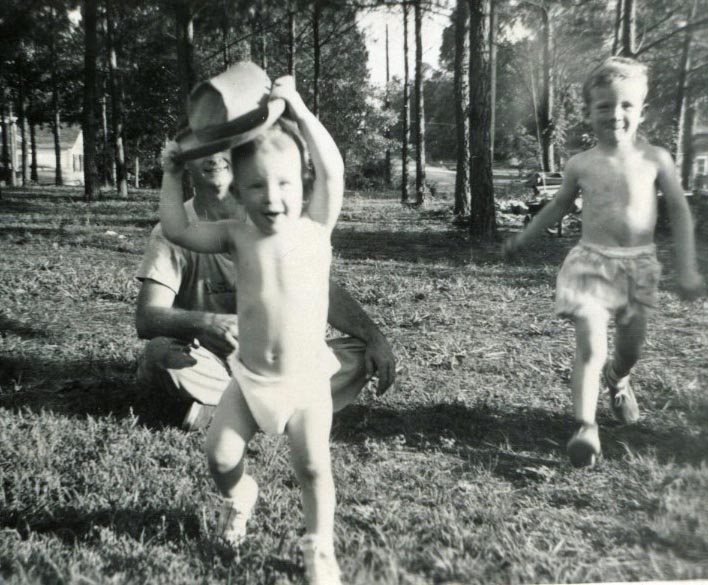
Our back yard, me breaking with my father’s hat
Our row of houses was built as temporary housing for Battey Hospital, which was at the end of the long straight section of Redmond Road where we lived. Battey had a nice, college-like campus with multiple buildings and a little residential area. It was separated from Summerville Park by a forest of tall loblolly pines. Battery was built during World War II as a hospital for injured military. It became a tuberculosis sanitarium around 1946, and that’s what it was when we lived on Redmond Road.
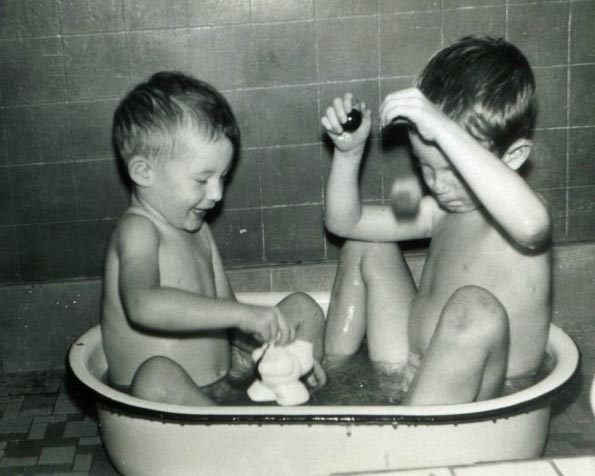
When were ever that small?
The rest of the houses in Summerville Park were a mix of (probably) late 30’s homes, small but mostly neat. Our house was utilitarian. Each side of the duplex was a mirror image of the other. I guess each side was about 30 feet square. There was a small eat-in kitchen with a gardenia right outside the window, a living room, two bedrooms and a bathroom. In the center, with a door from each room, there was a hall with a floor furnace. All of our shoes showed a singed grid pattern on the soles from standing on the floor furnace in the winter.
Our father built an enclosed back porch where our washer and dryer and our freezer were. He built the room by himself.
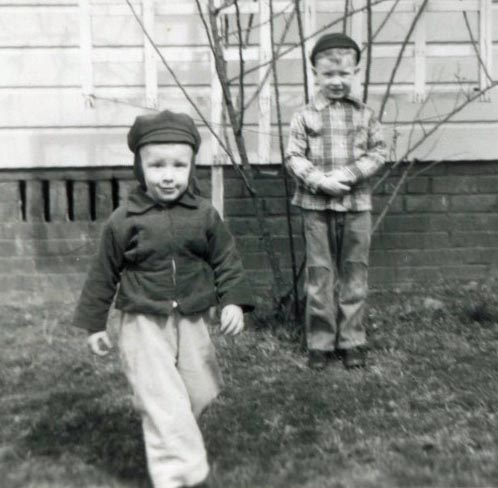
Henry follows orders, I do not. I want a close-up.
Henry and I shared a bedroom, which was probably the interior room. We had twin beds. Our father, who liked model trains, built a folding train table. It folded up between sets of shelves against the wall, and could be lowered down between our beds. We could fold it down and have two ovals of track, one in S-scale for our American Flyer train, and one in HO scale, for our father’s train. Henry used parts of the shelving units when he built a Wilson cloud chamber when he was a teenager. A cloud chamber is a device used in early particle physics. It is typical that Henry would build something like that.
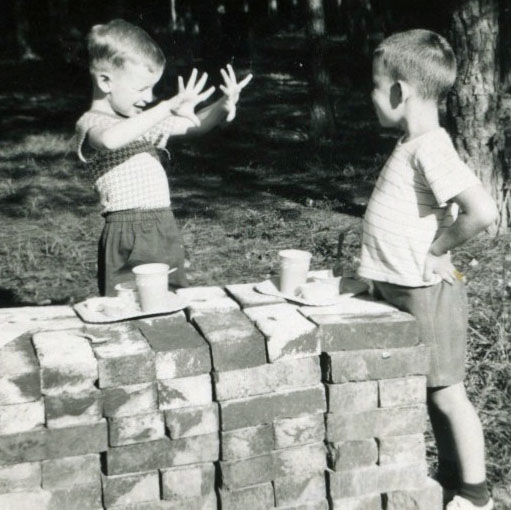
Henry explains things to a neighborhood boy.
Our parents had the corner bedroom. The little living room had a sofa and an overstuffed chair. Our father built a cabinet for a little black-and-white TV, a radio, and a turntable.

Christmas morning in the old duplex.
There was no air conditioning, of course. We eventually bought a window unit for the living room. When our father’s job changed at the Post Office, he had to work nights and sleep during the day. They bought a little window unit for their bedroom, mainly to provide white noise to drown out the noises the rest of us made.
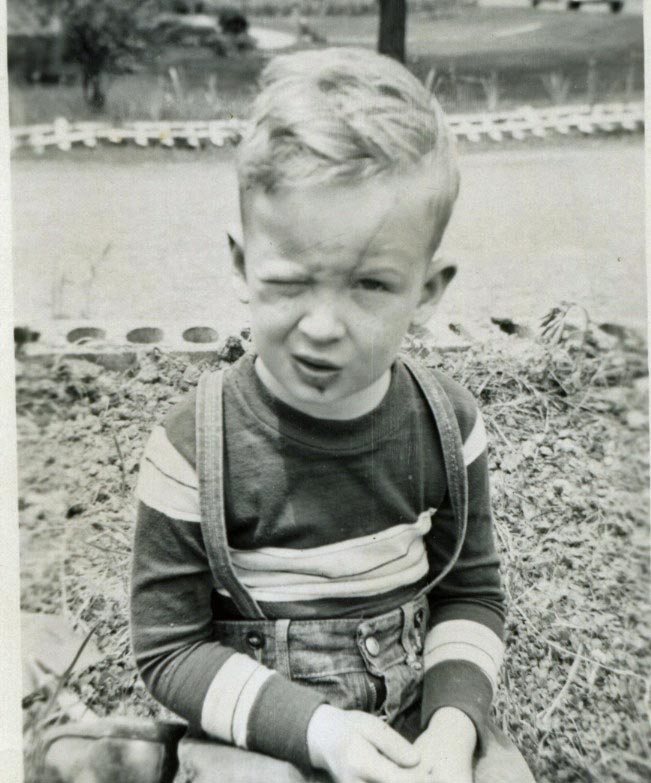
No smile here.
At some point in the late 1950’s we took over the other side of the duplex. Our father reinforced the ceiling in the attic and tore down the wall separating the two living rooms. Henry’s bedroom moved to the far corner, and mine moved to what had been the interior bedroom of the other part of the duplex. What had been our bedroom became a den, where the TV was placed. We had an antenna on a pole right outside the window, so we could twist the pole to adjust the antenna for better reception. We could get the three networks on Atlanta stations and the same three networks from Chattanooga stations.
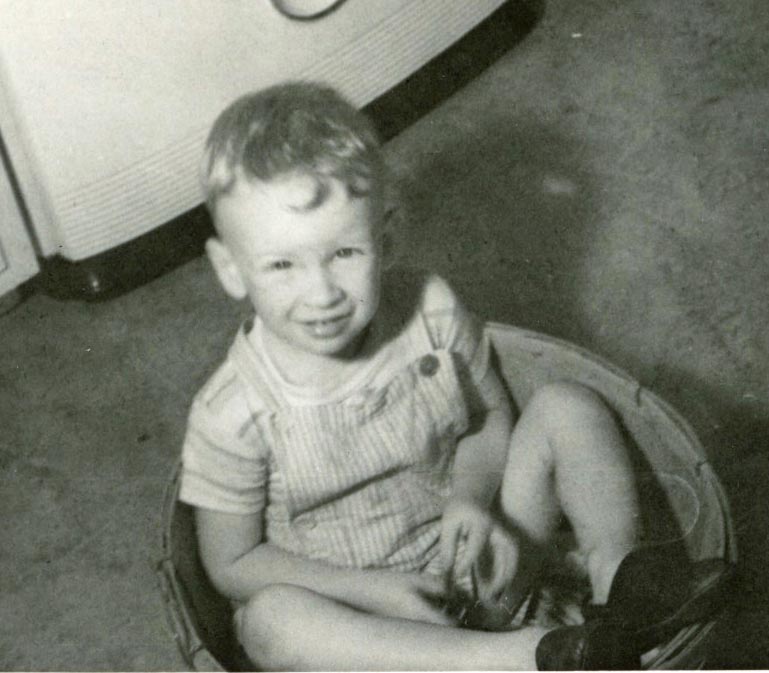
A little smile here.
In the summers we played flies-and-skinners, a baseball game with a hitter and a bunch of kids trying to catch the balls on the ground (skinners) or in the air. We played kickback in Leland Avenue, a football kicking game. We played kick the can. We believed that we had the right of free passage across all of our neighbors’ yards. We didn’t know how they felt about that, and we didn’t care. We crossed two other yards to reach “the woods”, a pine thicket between the last house between us and Martha Berry Boulevard.
“The woods” was divided into the familiar section closest to civilization (our house), and a less well explored section closer to the highway. The familiar area was where we built our forts. Several trails led into the wilderness, but we seldom went there.
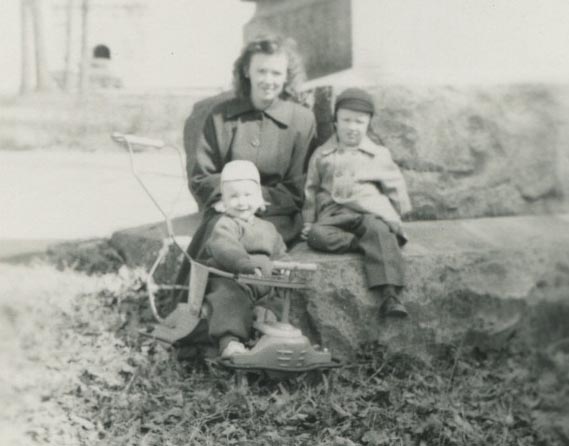
Mother and children
The woods also bordered the property of an old, abandoned mansion. On the other side of the mansion were the Glenwood Apartments. Sometimes when we felt especially wicked we would sneak up to the corner apartment, where all the electrical switch boxes were mounted. We would throw the switches to turn off power in some, possibly all the apartments in that block, and then run back home.
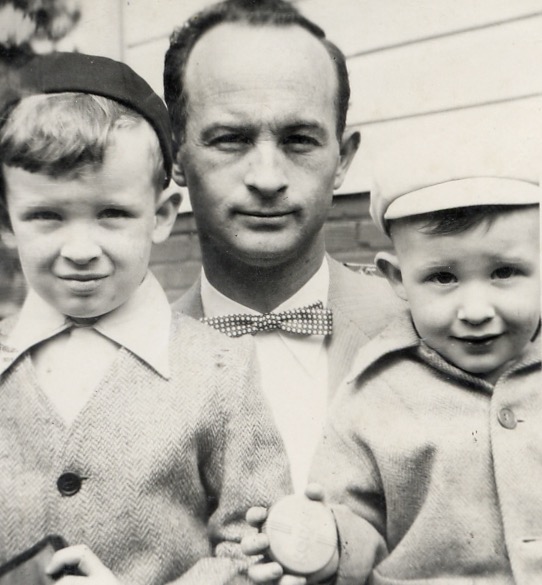
Father and children. Caps are so cool.
There was, and still is, a city park on the diagonally-opposite corner of Summerville Park. The city provided games and athletic equipment, plus a teenaged supervisor, for the neighborhood kids. We rode our bikes to the park most days. The hills were much higher and steeper in those days than when I drive over them today.
In 1953 Henry started elementary school at Fourth Ward School, two houses down from our father’s old home and a mile from ours. That was when Henry started his new life away from home, while I was still there, just three years old, still a baby. Almost all the memories of our lives are from after that time. Most of the memories are episodic, and they usually center on me, since at that age, all kids are selfish little barbarians.
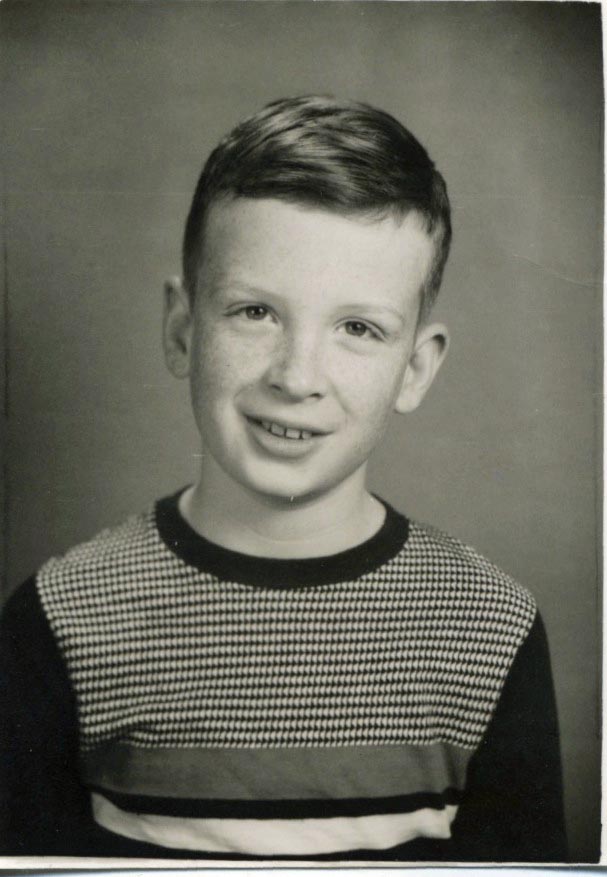
One of Henry’s school photos. He rarely smiled.
It was only in going back to those early days and trying to remember how we all lived that I realized how little interaction there was between two boys separated by almost three years in age. One of my earliest memories of those days is me chasing on foot after Henry, who was riding his new little bicycle down the street. For many years that was the kind of feeling I had about our relationship; Henry was forging on with a three-year head start, and I was struggling along behind him, handicapped by my own age.
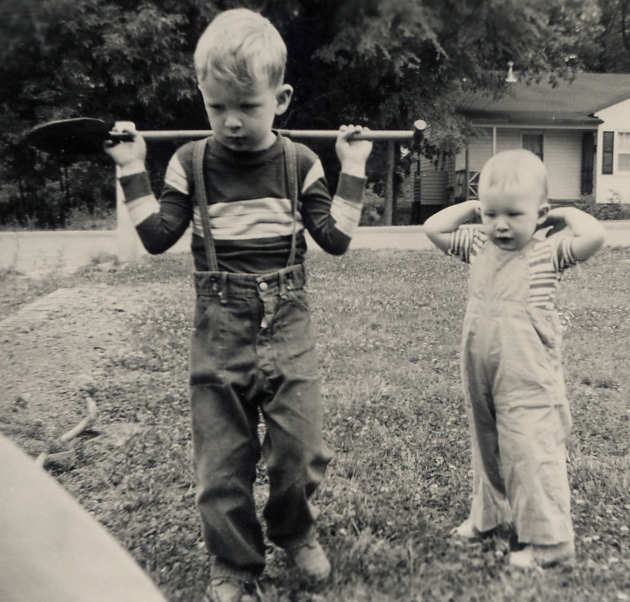
I have no shovel, but I must try to hold it over my shoulders. Because Henry.